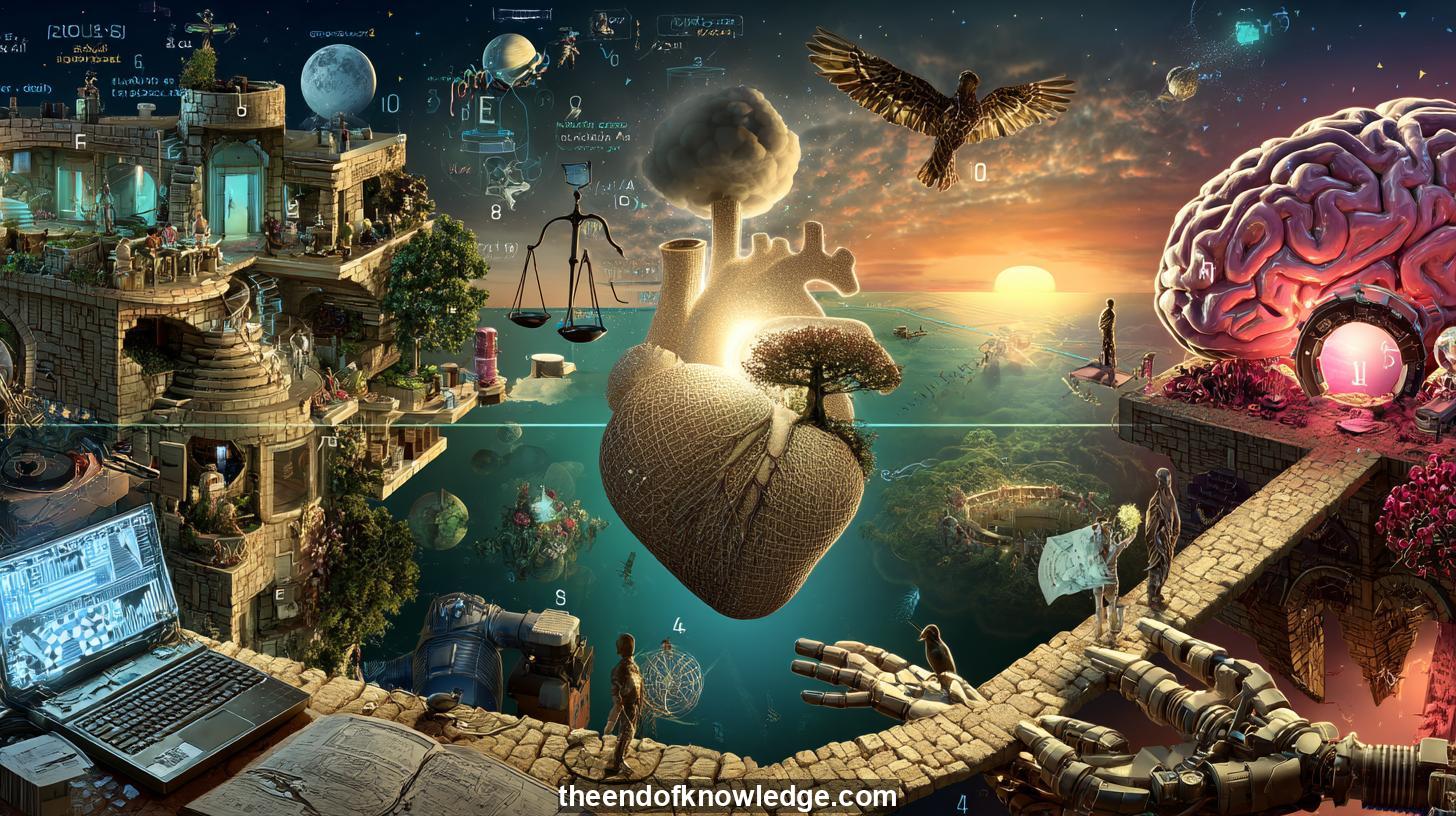 >
>
Concept Graph, Resume & KeyIdeas using Qwen3-235B-A22B :
Resume:
The conversation between Plácido and Daniel Ferrer explores artificial intelligence’s transformative potential, emphasizing its capacity to democratize knowledge and address global challenges. Ferrer, a multidisciplinary innovator, highlights projects like Cardio, an AI-driven cardiovascular diagnostic tool, and iSARP, which optimizes financial decisions. He underscores AI’s ability to enhance human capabilities, reduce inequalities, and democratize access to advanced technologies, contrasting this with societal fears fueled by media narratives. Ferrer argues that AI’s true value lies in augmenting human decision-making, not replacing it, and stresses the importance of legacy—creating solutions that improve lives across generations.30 Key Ideas:
1.- Cardio redefines cardiovascular diagnostics via AI, enabling 3D heart modeling to prevent diseases globally.
2.- AI democratizes expertise, granting equal access to advanced tools for professionals worldwide, bridging resource gaps.
3.- Spain’s bureaucratic resistance stifles tech innovation, hindering local talent despite global demand for Spanish-led projects.
4.- Ethical AI requires human-centric regulation, prioritizing collaboration over fear-driven narratives about job displacement.
5.- AGI’s emergence risks uncontrollable intelligence; alignment with human values is critical to avoid existential threats.
6.- Biotechnology-AI convergence could engineer disease-resistant humans, raising ethical questions about genetic manipulation’s societal impact.
7.- Universal Basic Income debates intensify as automation reshapes labor markets, demanding new economic paradigms.
8.- Historical revolutions (industrial, digital) illustrate adaptation’s necessity; resistance causes societal pain during transitions.
9.- Spain’s healthcare system lags in adopting AI, despite successful international implementations in cardiac screening and efficiency.
10.- Entrepreneurial failure should be reframed as learning, fostering resilience in innovation ecosystems versus punitive cultural attitudes.
11.- China’s strategic AI investments contrast with Europe’s fragmented policies, highlighting global competition for technological dominance.
12.- Quantum computing and AI synergy may unlock unprecedented problem-solving capacities, revolutionizing industries and science.
13.- Legacy-driven innovation prioritizes intergenerational impact, urging leaders to build solutions transcending personal or corporate gain.
14.- AI’s role in crisis prediction (e.g., energy grid failures) demonstrates its potential to mitigate disasters through proactive systems.
15.- Medical imaging’s inter-observer variability challenges are addressed by AI’s standardized, precise diagnostic capabilities.
16.- Public distrust in politicians stems from misaligned incentives; meritocracy and transparency could restore faith in governance.
17.- Hybrid human-AI systems (e.g., neural interfaces) may redefine evolution, merging biology with technology for enhanced capabilities.
18.- Cultural narratives shape AI adoption; optimism and education counteract fear-driven resistance to technological progress.
19.- Cardiovascular screening in pharmacies exemplifies AI’s accessibility, democratizing preventive care for underserved populations.
20.- Ethical AI development demands interdisciplinary collaboration, balancing technical prowess with philosophical and societal considerations.
21.- Spain’s talent exodus highlights systemic failures to retain innovators, contrasting with global markets embracing Spanish expertise.
22.- Predictive analytics in energy grids showcase AI’s ability to stabilize infrastructure, preventing cascading failures via real-time adjustments.
23.- AGI’s hypothetical “intelligence explosion” necessitates global governance frameworks to ensure alignment with human interests.
24.- Biased algorithms risk perpetuating inequalities; diverse datasets and inclusive design are ethical imperatives in AI development.
25.- Longevity research intersects with AI, aiming to extend healthy lifespans through personalized, data-driven healthcare interventions.
26.- Corporate governance models inspired by AI’s reinforcement learning could incentivize meritocratic leadership and accountability.
27.- AI-driven drug discovery accelerates clinical trials, leveraging vast datasets to identify treatments faster than traditional methods.
28.- Cultural perceptions of failure hinder innovation; reframing it as iterative progress fosters entrepreneurial resilience globally.
29.- Quantum-AI integration may solve complex biological problems, unlocking breakthroughs in genetics and disease prevention.
30.- The future hinges on balancing AI’s transformative power with ethical stewardship, ensuring technology elevates humanity equitably.
Interviews by Plácido Doménech Espí & Guests - Knowledge Vault built byDavid Vivancos 2025